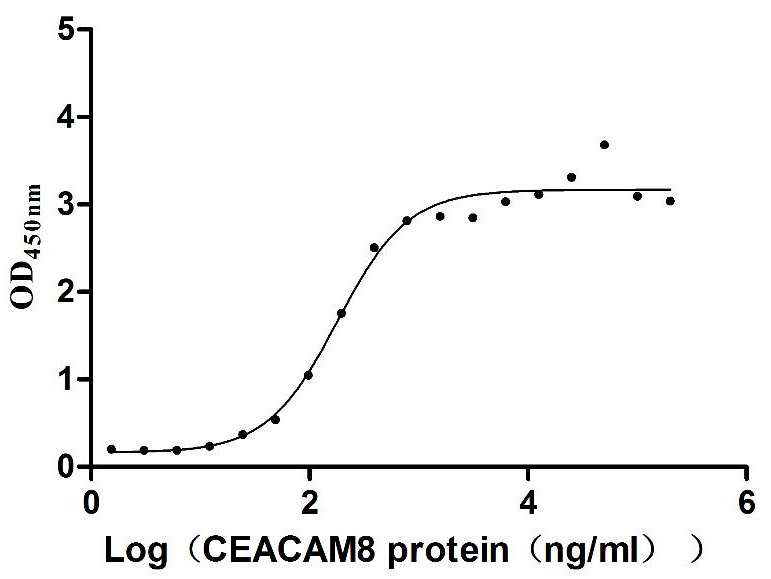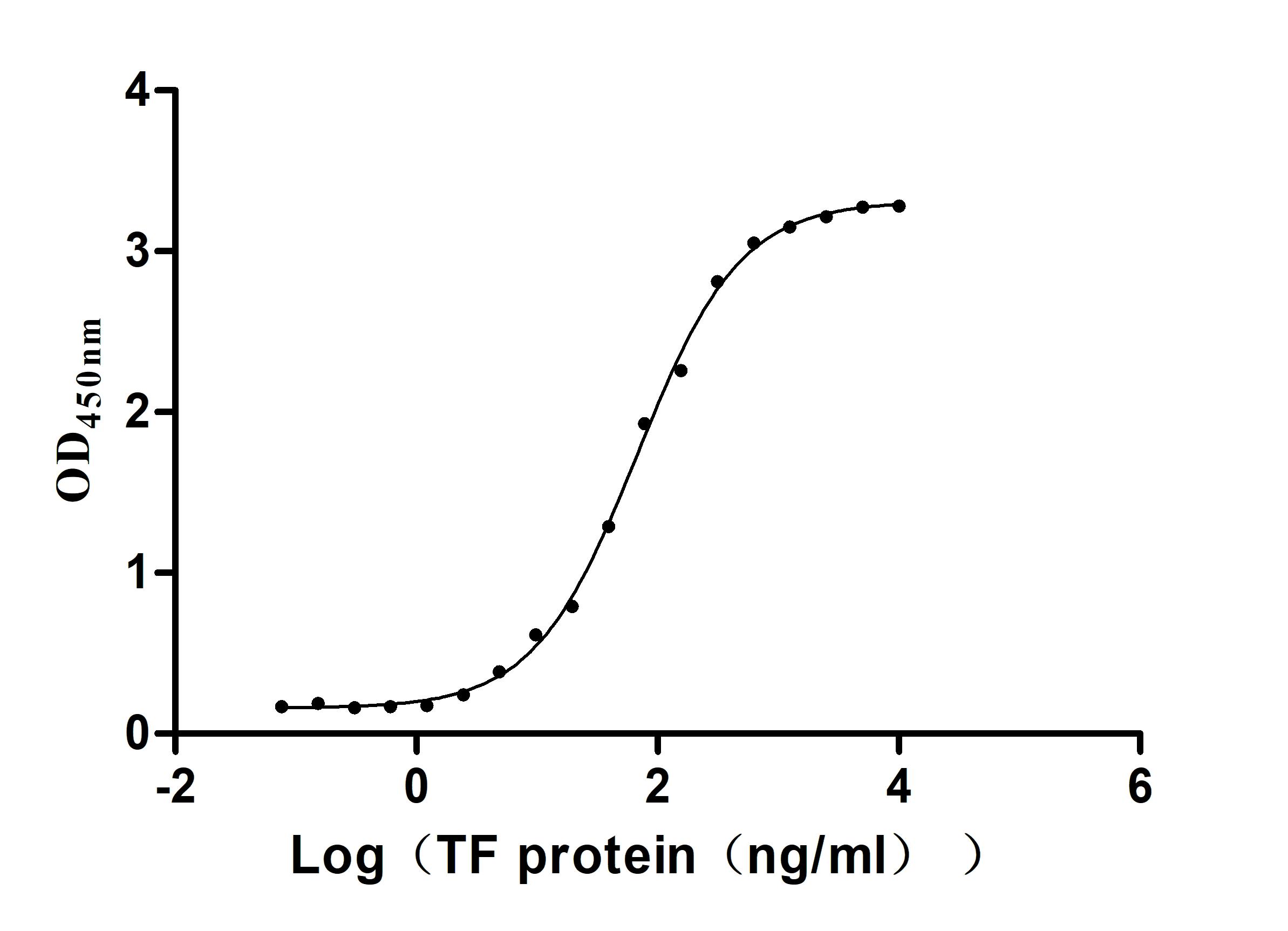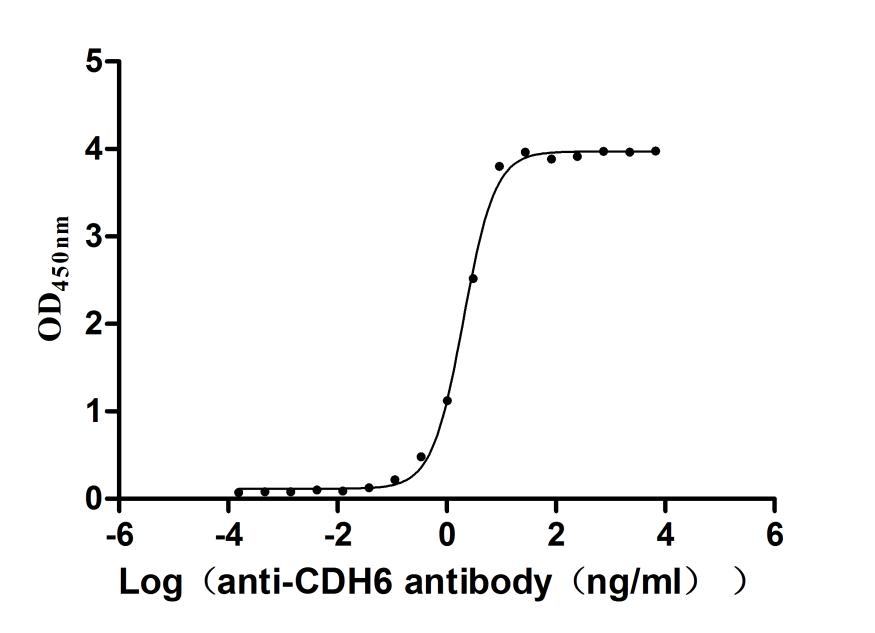Recombinant Saccharomyces cerevisiae Inositol polyphosphate multikinase (ARG82)
-
货号:CSB-YP011774SVG
-
规格:
-
来源:Yeast
-
其他:
-
货号:CSB-EP011774SVG
-
规格:
-
来源:E.coli
-
其他:
-
货号:CSB-EP011774SVG-B
-
规格:
-
来源:E.coli
-
共轭:Avi-tag Biotinylated
E. coli biotin ligase (BirA) is highly specific in covalently attaching biotin to the 15 amino acid AviTag peptide. This recombinant protein was biotinylated in vivo by AviTag-BirA technology, which method is BriA catalyzes amide linkage between the biotin and the specific lysine of the AviTag.
-
其他:
-
货号:CSB-BP011774SVG
-
规格:
-
来源:Baculovirus
-
其他:
-
货号:CSB-MP011774SVG
-
规格:
-
来源:Mammalian cell
-
其他:
产品详情
-
纯度:>85% (SDS-PAGE)
-
基因名:ARG82
-
Uniprot No.:
-
别名:ARG82; ARGR3; IPK2; YDR173C; YD9395.06CInositol polyphosphate multikinase; IPMK; EC 2.7.1.151; Arginine metabolism regulation protein III
-
种属:Saccharomyces cerevisiae (strain ATCC 204508 / S288c) (Baker's yeast)
-
蛋白长度:full length protein
-
表达区域:1-355
-
氨基酸序列MDTVNNYRVL EHKAAGHDGT LTDGDGLLIF KPAFPQELEF YKAIQVRDVS RRKSSADGDA PLCSWMPTYL GVLNEGAKIE QSGDAALLKI DERLSDSTDN LDSIPVKSEK SKQYLVLENL LYGFSKPNIL DIKLGKTLYD SKASLEKRER MKRVSETTTS GSLGFRICGM KIQKNPSVLN QLSLEYYEEE ADSDYIFINK LYGRSRTDQN VSDAIELYFN NPHLSDARKH QLKKTFLKRL QLFYNTMLEE EVRMISSSLL FIYEGDPERW ELLNDVDKLM RDDFIDDDDD DDDNDDDDDD DAEGSSEGPK DKKTTGSLSS MSLIDFAHSE ITPGKGYDEN VIEGVETLLD IFMKF
-
蛋白标签:Tag type will be determined during the manufacturing process.
The tag type will be determined during production process. If you have specified tag type, please tell us and we will develop the specified tag preferentially. -
产品提供形式:Lyophilized powder
Note: We will preferentially ship the format that we have in stock, however, if you have any special requirement for the format, please remark your requirement when placing the order, we will prepare according to your demand. -
复溶:We recommend that this vial be briefly centrifuged prior to opening to bring the contents to the bottom. Please reconstitute protein in deionized sterile water to a concentration of 0.1-1.0 mg/mL.We recommend to add 5-50% of glycerol (final concentration) and aliquot for long-term storage at -20℃/-80℃. Our default final concentration of glycerol is 50%. Customers could use it as reference.
-
储存条件:Store at -20°C/-80°C upon receipt, aliquoting is necessary for mutiple use. Avoid repeated freeze-thaw cycles.
-
保质期:The shelf life is related to many factors, storage state, buffer ingredients, storage temperature and the stability of the protein itself.
Generally, the shelf life of liquid form is 6 months at -20°C/-80°C. The shelf life of lyophilized form is 12 months at -20°C/-80°C. -
货期:Delivery time may differ from different purchasing way or location, please kindly consult your local distributors for specific delivery time.Note: All of our proteins are default shipped with normal blue ice packs, if you request to ship with dry ice, please communicate with us in advance and extra fees will be charged.
-
注意事项:Repeated freezing and thawing is not recommended. Store working aliquots at 4°C for up to one week.
-
Datasheet :Please contact us to get it.
靶点详情
-
功能:Inositol phosphate kinase with both monophosphoinositol and diphosphoinositol polyphosphate synthase activities. Able to phosphorylate inositol 1,4,5-trisphosphate (Ins(1,4,5)P3) on both the carbon-3 and carbon-6 positions to synthesize inositol 1,3,4,5-tetrakisphosphate (Ins(1,3,4,5)P4) and inositol 1,4,5,6-tetrakisphosphate (Ins(1,4,5,6)P4), and then to subsequently phosphorylate and convert either isomer of InsP4 to inositol 1,3,4,5,6-pentakisphosphate (Ins(1,3,4,5,6)P5). Its predominant in vivo catalytic function is to convert Ins(1,4,5)P3 to Ins(1,4,5,6)P4 to Ins(1,3,4,5,6)P5 via 6- and 3-kinase activities. It can also use Ins(1,3,4,5,6)P5 as a substrate and act as a diphosphoinositol polyphosphate synthase to generate two different isomers of PP-InsP4. Has also a role in transcription regulation. Forms a complex with ARG80, ARG81 and MCM1 (ArgR-MCM1), which coordinates the expression of arginine anabolic and catabolic genes in response to arginine. Recruits ARG80 and MCM21 to stabilize them. Neither the kinase activity nor inositol phosphates are required for the formation of ArgR-MCM1 transciptional complexes on DNA promoter elements and the control of arginine metabolism. In contrast, only the catalytic activity is required for PHO gene repression by phosphate and for NCR gene activation in response to nitrogen availability, indicating a role for inositol pyrophosphates in these controls. Inositol polyphosphates may be involved in the regulation of chromatin remodeling of transcription. Regulates nuclear mRNA export via inositol phosphate metabolism. Also has lipid kinase activity, transforming the lipid inositol phosphatidylinositol 4,5-bisphosphate (PI(4,5)P2) into phosphatidylinositol 3,4,5-trisphosphate (PI(3,4,5)P3) in the nucleus. Its kinase activity is necessary for the propagation of most [PSI+] prion variants.
-
基因功能参考文献:
- IPK2-dependent transcriptional control has been described in Saccharomyces cerevisiae. PMID: 28342784
- Studies indicate that the inositol-polyphosphate multikinase (IPMK) homologue, Arg82, is the sole inositol-trisphosphate kinase. PMID: 22992733
- Replacement of critical side chains in the inositol binding site suggests how modification of substrate recognition motifs determines enzymatic substrate preference and catalysis. PMID: 17050532
-
亚细胞定位:Nucleus.
-
蛋白家族:Inositol phosphokinase (IPK) family
-
数据库链接:
KEGG: sce:YDR173C
STRING: 4932.YDR173C
Most popular with customers
-
Express system: Mammalian cell
Species: Homo sapiens (Human)
-
Recombinant Human Glucagon receptor (GCGR), partial (Active)
Express system: Mammalian cell
Species: Homo sapiens (Human)
-
Recombinant Human Melanoma-associated antigen 4 (MAGEA4) (Active)
Express system: Mammalian cell
Species: Homo sapiens (Human)
-
Recombinant Human Claudin-6 (CLDN6)-VLPs (Active)
Express system: Mammalian cell
Species: Homo sapiens (Human)
-
Recombinant Human Carcinoembryonic antigen-related cell adhesion molecule 6 (CEACAM6) (Active)
Express system: Mammalian cell
Species: Homo sapiens (Human)
-
Recombinant Human Serotransferrin(TF) (Active)
Express system: Mammalian cell
Species: Homo sapiens (Human)
-
Recombinant Mouse Cadherin-6(Cdh6),partial (Active)
Express system: Mammalian cell
Species: Mus musculus (Mouse)


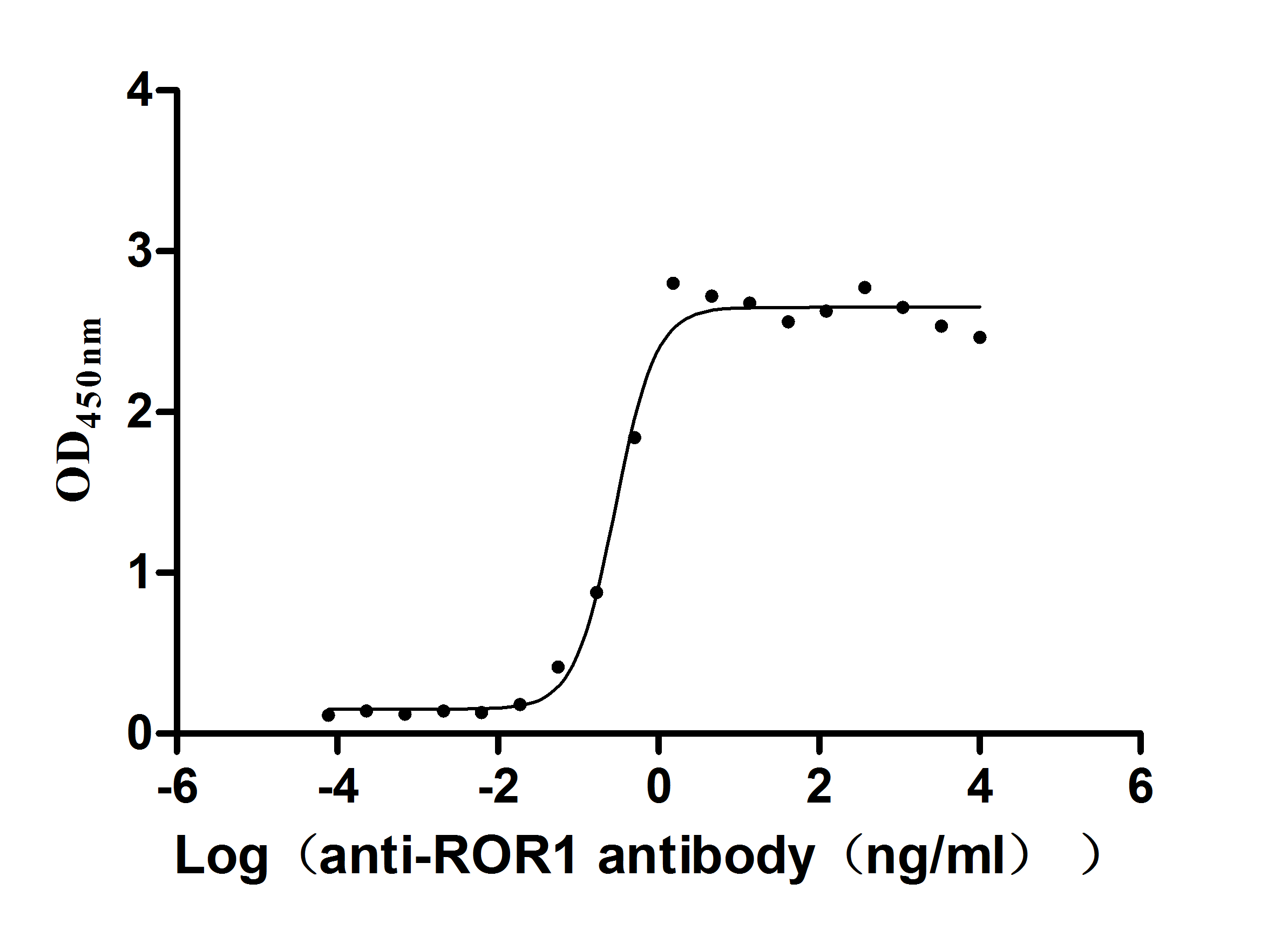

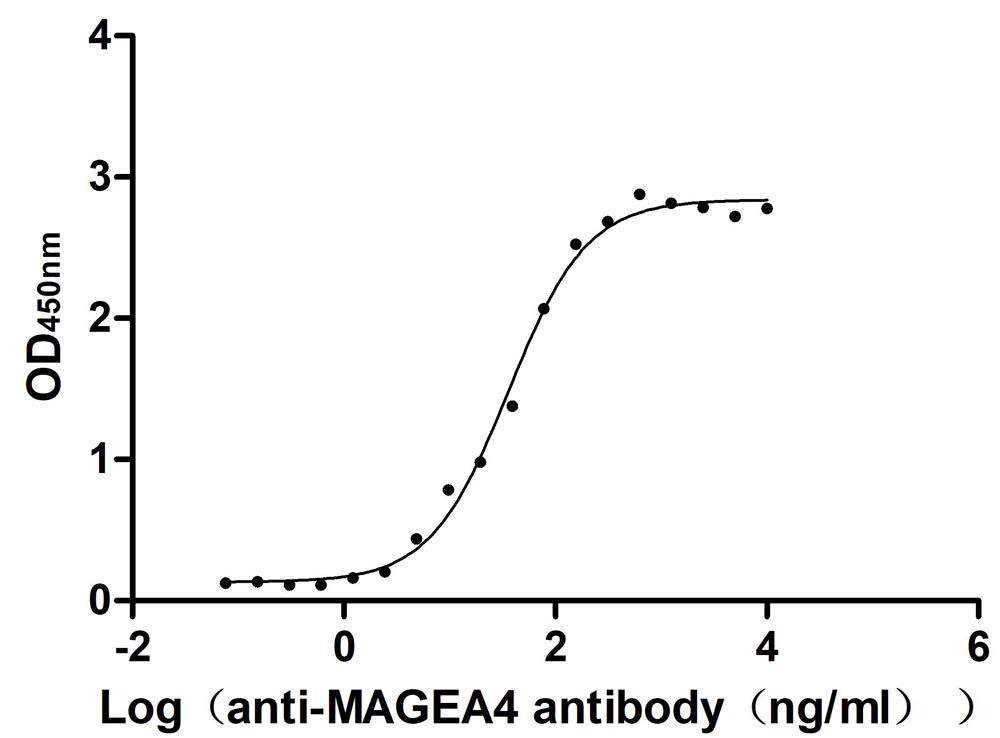
-AC1.jpg)
